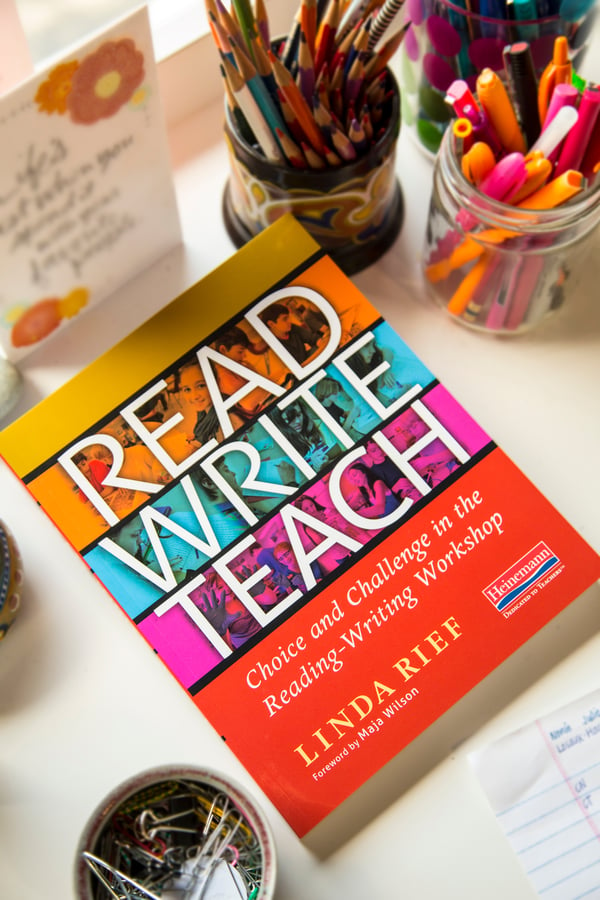 Heinemann author Linda Rief is an eighth-grade teacher at Oyster River Middle School, in Durham, New Hampshire. She has inspired thousands of practitioners across the nation to lead adolescents on a journey to becoming lifelong readers and writers. In a two-part blog series, we speak with Linda about her recent book Read Write Teach (click here for part one).
Heinemann author Linda Rief is an eighth-grade teacher at Oyster River Middle School, in Durham, New Hampshire. She has inspired thousands of practitioners across the nation to lead adolescents on a journey to becoming lifelong readers and writers. In a two-part blog series, we speak with Linda about her recent book Read Write Teach (click here for part one).
Throughout your book you stress the importance of providing quality feedback to students. You also indicate that you only have so much time to respond to your students’ work, so you do your best. What advice do you have for teachers who want to give meaningful feedback but have time constraints?
We have to make the time. Meaningful writing comes from meaningful feedback. Get rid of things that don’t help the writer make the writing better and replace them with things that do. Get rid of worksheets. Get rid of identifying parts of speech. Get rid of writing exercises or prompts that don’t go anywhere. Give kids opportunities to write for real reasons for a real audience and offer them feedback that helps them make that writing the strongest it can be. As professionals we make choices—choose to spend the time doing the things that move kids forward as writers, not the things that hold them back.
We all have serious time constraints. I only have my students for fifty minutes a day. Having oral writing conferences is difficult, so I teach students to give meaningful feedback to one another orally or in writing or in write-around conferences. I model my own writing first, teaching them the kind of response that helps me make my writing better.
The purpose behind offering feedback is to help writers fulfill their intentions. I want kids to know that conferences are conversations in which I am listening hard to their intentions and trying my best, through my comments, questions, and suggestions, to help them succeed in their intentions.
You were quoted in this article from the New York Times. Has your opinion on standardized test prep changed since 2011?
No, it hasn’t changed. When standardized tests are used to determine a student’s, a teacher’s, or a school’s success or failure, without considering any other factors, they are a big mistake. Standardized tests show only a small fraction of a student’s knowledge. They are indicators only. Our obsession in America with using them in high-stakes evaluation is wrong.
Teachers spending weeks and months preparing kids to take standardized tests is such a waste of time. Immersing kids in reading and writing of all kinds is preparation enough. Shouldn’t we be doing real writing and real reading for real reasons and letting that stand as an indicator of what kids are capable of as writers and readers?
Real learning is messy. Growth happens over time. Asking students to submit a portfolio of work, a range of writing over time, with first and last drafts, including responses to and analyses of an array of texts, is a far better indicator of what kids can do at any age. Although that kind of assessment is complex and time-consuming, good classroom teachers use it all the time.


